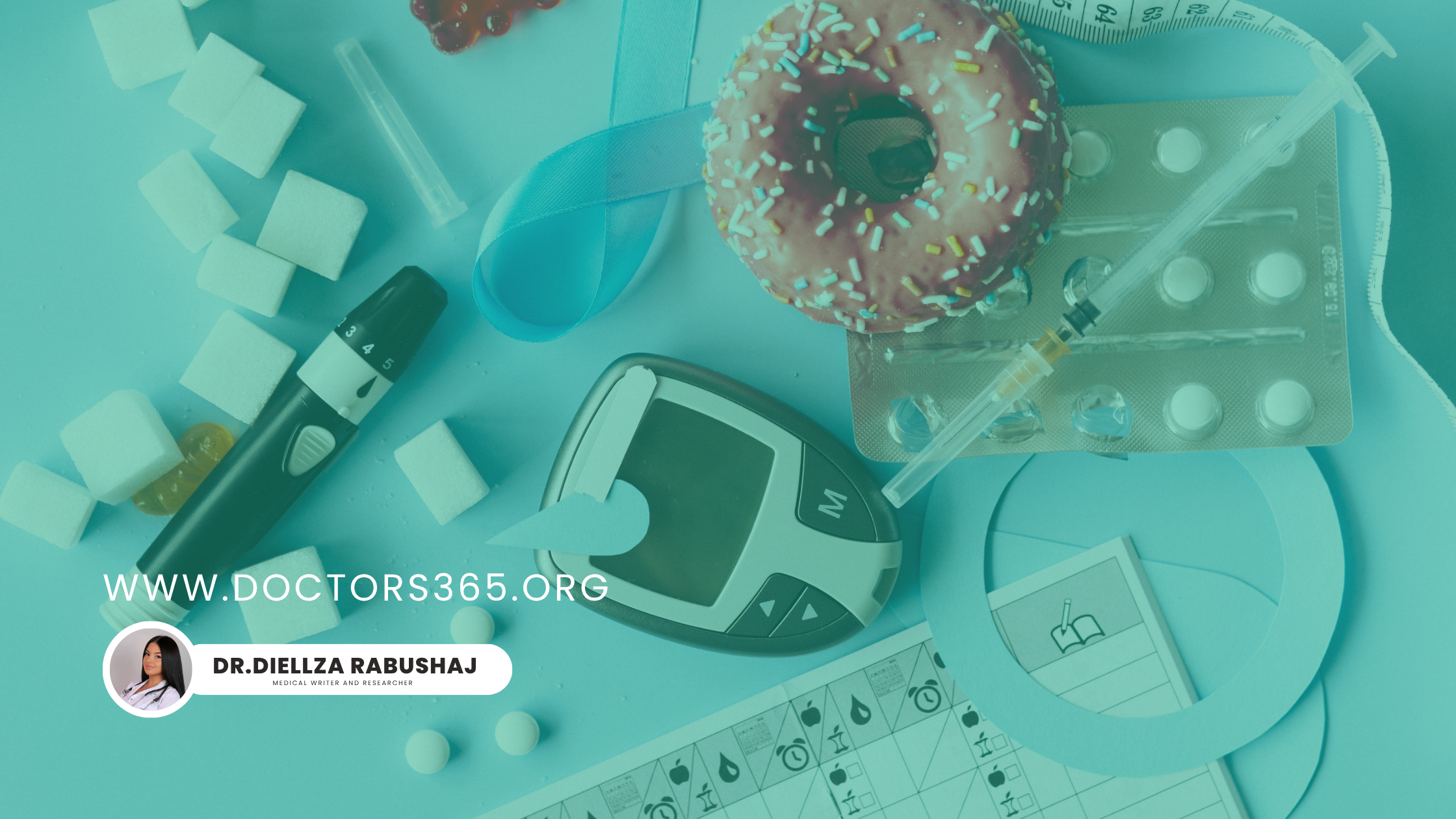
Cardiology
Can My Diabetes Medicine Help My Heart Too?
Some diabetes tablets (SGLT2 inhibitors) can also protect your heart. Find out how and when they’re used.
People with type 2 diabetes have a much higher risk of heart failure and kidney disease. New evidence shows that SGLT2 inhibitors – tablets originally designed to lower blood sugar – can also protect the heart and kidneys. Large clinical trials and guideline updates now position these medicines as a “new pillar” of heart failure treatment, reducing hospitalisations and cardiovascular deaths in people with and without diabetes. This article explains, in simple language, how SGLT2 inhibitors work, who might benefit, what side effects to watch for and when they cannot replace other treatments. It also clarifies when you need urgent in-person care and how secure online consultations on doctors365.org with cardiologists, endocrinologists and internal medicine specialists can help you decide if these medicines are right for you.
This article is for educational purposes only and is not a substitute for personal medical advice, diagnosis, treatment or emergency care.
If you think you might be having a medical emergency (for example, chest pain, severe shortness of breath, fainting), call your local emergency number or go to the nearest emergency department immediately.
Author: Dr. Diellza Rabushaj
1. Can my diabetes medicine help my heart too? (Introduction)
If you live with type 2 diabetes, you’ve probably heard a lot about blood sugar, diet and insulin – but maybe not as much about your heart.
Over the last few years, a group of tablets called SGLT2 inhibitors (often called “flozins”) has changed the way doctors treat both diabetes and heart failure. These medicines were first designed to lower blood sugar – but large studies showed they also protect the heart and kidneys, and even help people who don’t have diabetes.[1–5]
So the short answer is:
Yes – some diabetes medicines (SGLT2 inhibitors) can also help your heart.
In many people, they lower the risk of hospitalisation for heart failure and death from cardiovascular causes.[1–5]
In this article, we’ll break this down in simple language, explain what this might mean for you, and show how you can talk to a specialist on doctors365.org about whether these medicines are right in your situation.
1.1 Why this question matters
People with type 2 diabetes have a much higher risk of heart disease and heart failure than those without diabetes.[1,2]
Heart failure doesn’t mean the heart has “stopped”, but that it’s weaker or stiffer than it should be, so it struggles to pump blood effectively. This can lead to:
- Breathlessness
- Swollen ankles
- Fatigue and low energy
- Frequent hospital stays
Anything that can treat diabetes and protect the heart at the same time is a big win – both medically and for your quality of life.
2. What are SGLT2 inhibitors in simple terms?
SGLT2 inhibitors (you might see names like empagliflozin, dapagliflozin, canagliflozin, ertugliflozin) are tablets taken once a day.
Very simply:
- Your kidneys normally filter sugar out of your blood and then reabsorb most of it.
- SGLT2 inhibitors block part of this “reabsorption” step.
- That means you pee out extra sugar (and a bit of salt and water), which:
- Lowers your blood sugar
- Slightly lowers your blood pressure
- Reduces fluid overload, which can stress the heart[1,2,4]
Think of it like gently “unloading” the heart and kidneys every day.
3. How are diabetes, the kidneys and the heart connected?
Diabetes affects small and large blood vessels all over the body. Over time it can:
- Damage heart arteries → heart attacks
- Damage heart muscle → heart failure
- Damage kidneys → chronic kidney disease
When the kidneys are struggling, the body keeps more salt and water, which makes your heart work harder. That’s why diabetes, kidney disease and heart failure often come as a package.
SGLT2 inhibitors act mainly through the kidneys, but bring benefits that reach all the way to the heart.[1].
4. What does the research say about SGLT2 inhibitors and heart failure?
Researchers have now run large, high-quality clinical trials involving thousands of people with:
- Type 2 diabetes with and without heart failure, and
- Heart failure with reduced ejection fraction (HFrEF) and preserved ejection fraction (HFpEF), sometimes even without diabetes.[1,2,4,5]
4.1 Lower risk of heart failure and death
Across multiple trials and reviews:
- SGLT2 inhibitors reduce the risk of being admitted to hospital for heart failure.[1,2,4,5]
- They also lower the risk of dying from cardiovascular causes in people with heart failure, especially HFrEF.[1,4,5]
One review described SGLT2 inhibitors as a “powerful therapeutic option” for reducing heart failure risk in people with type 2 diabetes and cardiovascular death in heart failure with reduced ejection fraction.[1]
More recent data show consistent reductions in heart failure hospitalisations, cardiovascular death and even all-cause mortality across big trials such as DAPA-HF, EMPEROR-Reduced, EMPEROR-Preserved and DELIVER.[2,4,5]
4.2 Benefits even beyond blood sugar control
One of the most important findings is that these heart benefits appear even in people without diabetes.[2,4,5]
This tells us the effect is not just about lowering sugar. SGLT2 inhibitors also seem to:
- Help the heart use energy (fuel) more efficiently
- Reduce harmful fluid overload
- Lower blood pressure slightly
- Protect the kidneys, which in turn helps the heart[1,2,4]
One paper calls them a “new pillar of the heart failure regimen”, meaning they now sit alongside ACE inhibitors/ARNI, beta-blockers and mineralocorticoid receptor antagonists as standard therapy.[4]
4.3 Included in modern heart failure guidelines
Reviews aimed even at nurses and non-cardiology professionals highlight that SGLT2 inhibitors are now built into American and European heart failure guidelines as core (“pillar”) therapy.[3,4]
In practical terms, this means:
If you have heart failure – especially HFrEF – and no strong reasons not to take them, your cardiologist will usually consider an SGLT2 inhibitor as part of your standard treatment.
5. Do these medicines help only people with diabetes?
No. That’s one of the most exciting parts.
Early on, SGLT2 inhibitors were only used for type 2 diabetes. But the big heart failure trials later showed benefits in:
- People with heart failure and diabetes
- People with heart failure but no diabetes[2,4,5]
So you might see an SGLT2 inhibitor used for:
- Type 2 diabetes plus heart failure
- Type 2 diabetes without heart failure (to reduce future risk)
- Heart failure (HFrEF or HFpEF) without diabetes, if your heart failure team feels it’s appropriate
Whether this is right for you depends on your heart function, kidney function, other medicines and overall health.
6. Who might be offered an SGLT2 inhibitor?
Doctors may consider an SGLT2 inhibitor if you:
- Have type 2 diabetes and high cardiovascular risk or established cardiovascular disease
- Have heart failure with reduced ejection fraction (HFrEF)
- Have heart failure with preserved ejection fraction (HFpEF) in some cases
- Have mild to moderate chronic kidney disease, depending on your kidney numbers[1–5]
BUT:
- Not everyone is suitable
- Dose and choice of medicine can differ
- Kidney function and other medicines (like diuretics, blood-pressure drugs) need checking first
That’s why this decision is best made in a proper consultation with a cardiologist, diabetologist or internist.
💬 Want to know if this applies to you?
You can book an online cardiology consultation or talk to an endocrinologist on doctors365.org to review your medications and heart risk.
7. Possible side effects and safety checks
SGLT2 inhibitors are generally well tolerated, but like any medicine, they have potential side effects. Common issues include:
- More frequent urination
- Higher risk of genital yeast infections (thrush)
- Slight drop in blood pressure, which can cause dizziness in some people[1,2,4]
Less common but important issues include:
- Dehydration, especially if you already take strong diuretics
- A rare risk of diabetic ketoacidosis, sometimes even with relatively normal blood sugars (euglycaemic DKA)
- Worsening kidney function in some situations – which is why doctors check kidney numbers before and during treatment
Your doctor will usually:
- Check kidney function (creatinine, eGFR)
- Review other medicines (especially diuretics, insulin, blood-pressure drugs)
- Explain sick-day rules (when to temporarily pause the medicine if you’re vomiting, fasting, or very unwell)
Never start, stop or change an SGLT2 inhibitor without talking to a healthcare professional who knows your medical history.
8. What SGLT2 inhibitors cannot replace
These medicines do not replace:
- A heart-healthy diet
- Regular physical activity (within what’s safe for you)
- Stopping smoking
- Other heart failure medicines (ACE inhibitors/ARNI, beta-blockers, MRA, diuretics) unless your doctor specifically changes them[1–4]
Think of SGLT2 inhibitors as one extra tool in a bigger toolkit – powerful, but most effective when used alongside other treatments and lifestyle changes.
9. How online care with doctors365.org works
On doctors365.org, you can talk to cardiologists, endocrinologists and other specialists from home. The process is simple:
- Browse
- Visit doctors365.org and browse by specialty (for example, cardiology, endocrinology, internal medicine).
- Pick a time
- Choose a doctor and time slot that works for you – including evenings or weekends, depending on availability.
- Confirm & pay securely
- Confirm your booking and pay through our secure, encrypted platform.
- Have your online visit
- Join via video or audio at the scheduled time, using your phone, tablet or computer.
- Get a summary and prescriptions
- After the consultation, you receive a visit summary, and if appropriate, e-prescriptions or referrals, depending on your country’s regulations.
Ready to talk about your diabetes and heart risk?
Book a specialist online now.
10. Why choose doctors365.org for heart and diabetes care?
10.1 Convenience and 24/7 access
- Book from home, work or while travelling
- Flexible appointment times, including outside typical office hours
- No waiting room, no travel time, and less time off work
10.2 Privacy, security and trusted doctors
- All consultations use encrypted connections to protect your data
- Doctors are verified, with checked credentials and license status
- Clinical governance processes ensure quality and safety in care
You can feel comfortable discussing sensitive topics like medications, sexual health concerns, weight, or mental health in a private, secure setting.
11. Which specialists can help you on doctors365.org?
For questions about SGLT2 inhibitors, heart failure and diabetes, you might choose:
- Cardiologists – for heart failure, cardiomyopathy, arrhythmias, and overall heart risk
- Endocrinologists / Diabetologists – for diabetes control, medication choices and long-term risk reduction
- Nephrologists – if you also have kidney disease
- Internal medicine specialists – for complex, multi-condition care
These doctors can:
- Review your current medicines
- Check whether adding an SGLT2 inhibitor makes sense
- Help coordinate care with your local, in-person doctors
12. When you must see a doctor in person or call emergency services
Online care is great for advice, reviews and follow-up, but some situations are not suitable for telemedicine.
You should call emergency services or go to the nearest emergency department immediately if you have:
- Chest pain or pressure lasting more than a few minutes, especially if it spreads to the arm, neck, jaw or back
- Sudden shortness of breath, choking feeling, or trouble breathing at rest
- Fainting, collapse, or feeling like you might pass out
- Sudden severe weakness, trouble speaking, drooping of the face (possible stroke)
- Very high blood sugar with nausea, vomiting, abdominal pain, fast breathing, confusion (possible ketoacidosis)
You should see a doctor in person soon if you notice:
- Rapid weight gain (e.g., more than 2–3 kg in a few days)
- Worsening leg swelling
- New or much worse breathlessness with mild effort
- Signs of severe infection (fever, shivering, feeling very unwell)
Online doctors at doctors365.org can help you decide if you need urgent in-person care, but they cannot replace emergency services.
13. Pricing and availability of online consultations
Pricing on doctors365.org may vary depending on:
- The specialty (cardiology vs general internal medicine)
- The length of the appointment
- Your location and local regulations
Typically you’ll see:
- The consultation fee clearly displayed before booking
- Secure online payment and confirmation email
- Information on any follow-up arrangements
Some patients may be able to get reimbursement or partial coverage depending on insurance and local rules – your specialist can advise if this applies to you.
14. How to prepare for your online consultation
To get the most from your visit:
- Write down your questions
- “Do I qualify for an SGLT2 inhibitor?”
- “How would it fit with my current heart or diabetes medicines?”
- Have your latest results ready
- Blood tests (HbA1c, kidney function, cholesterol)
- Echocardiogram or heart ultrasound reports
- List all your medicines
- Prescription tablets, insulin, inhalers
- Over-the-counter medicines and supplements
- Know your symptoms
- How far can you walk?
- Do you get short of breath lying flat?
- Any swelling of the legs or abdomen?
This helps your doctor give you personalised, safe advice about whether SGLT2 inhibitors are suitable for you.
15. Frequently asked questions (FAQ)
15.1 If I start an SGLT2 inhibitor, can I stop my other heart medicines?
Usually no. SGLT2 inhibitors are meant to add to your other heart failure or heart protection medicines, not replace them, unless your cardiologist specifically changes your plan.[1–4]
15.2 Will I definitely live longer if I take an SGLT2 inhibitor?
No medicine can promise that, but large studies show that, on average, people taking SGLT2 inhibitors have fewer heart failure hospitalisations and lower cardiovascular mortality than those who don’t.[1,2,4,5]
15.3 Are SGLT2 inhibitors safe if I have kidney problems?
Many people with mild to moderate kidney disease can take SGLT2 inhibitors, and studies suggest they may even slow kidney decline.[1,2]
But the exact decision depends on your eGFR and other factors – always discuss this with your doctor.
15.4 Can I take an SGLT2 inhibitor if I don’t have diabetes?
Yes, in some cases. For example, people with heart failure (HFrEF or HFpEF) but no diabetes have still shown benefits in trials.[2,4,5]
This is usually started by a cardiologist or heart failure specialist.
15.5 What should I watch out for after starting an SGLT2 inhibitor?
Call your doctor urgently if you develop:
- Severe thirst, vomiting, abdominal pain or deep breathing
- Signs of genital infection (pain, itching, discharge)
- Very low blood pressure symptoms (fainting, severe dizziness)
Your online doctor on doctors365.org can help you decide whether to continue, pause or stop the medicine – but for serious symptoms, seek in-person or emergency care immediately.
16. Key takeaways and next steps
- Some diabetes medicines, specifically SGLT2 inhibitors, can significantly help your heart, not just your blood sugar.
- Large studies show they reduce hospitalisations for heart failure and lower the risk of dying from heart-related causes, even in some people without diabetes.[1–5]
- They are now considered a “new pillar” of heart failure treatment in modern guidelines.[3,4]
- They are not suitable for everyone, and they do not replace healthy lifestyle changes or other heart medicines.
🔍 Wondering if your diabetes medicine could help your heart too?
Book a convenient online appointment with a cardiologist or endocrinologist on doctors365.org:
A short conversation with a specialist can help you understand your personal risks and options.
17. References
- Oh J, Lee S-H, Lee CJ, Kang S-M. Sodium-glucose co-transporter 2 inhibitors: a new path for heart failure treatment. Korean Circ J. 2021;51(5):399–408. doi:10.4070/kcj.2021.0070. Europe PMC+2pc.e-kcj.org+2
- Muscoli S, Barillà F, Tajmir R, Meloni M, Della Morte D, Bellia A, et al. The new role of SGLT2 inhibitors in the management of heart failure: current evidence and future perspective. Pharmaceutics. 2022 Aug 18;14(8):1730. doi:10.3390/pharmaceutics14081730. irjpl.org+3PubMed+3MDPI+3
- March KL, Lukas JG, Berei T, Shah SP, Cave B. SGLT-2 inhibitor use in heart failure: a review for nurses. Crit Care Nurs Q. 2022;45(2):189–198. doi:10.1097/CNQ.0000000000000401. Eureka Magazine+4Lippincott Journals+4ResearchGate+4
- DeSa T, Gong T. SGLT2 inhibitors: a new pillar of the heart failure regimen. Rev Cardiovasc Med. 2021;22(4):1253–1269. doi:10.31083/j.rcm2204133. Wiley Online Library+4PubMed+4IMR Press+4
- Wielgus K, Bator P, Pawłowska M, Magiera K, Rachwał K, Antos M, et al. SGLT2-inhibitors – significant role in heart failure treatment. J Educ Health Sport. 2024;71:49418:1–8. doi:10.12775/JEHS.2024.71.49418.
Recommended articles for You

Some diabetes tablets (SGLT2 inhibitors) can also protect your heart. Find out how and when they’re used.

How AI is reshaping modern medicine and how doctors365.org connects you with specialists in this new digital era.

High cortisol explained: symptoms, testing options, and how Doctors365 endocrinologists guide safe, accurate diagnosis online.